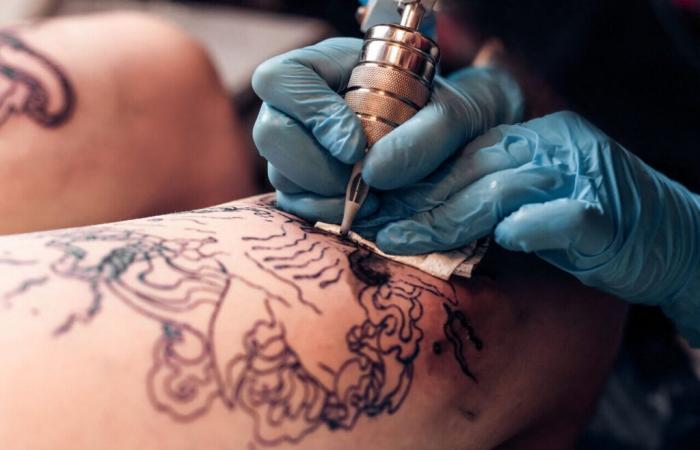Par
Editorial News
Published on
Oct. 20 2024 at 9:48 p.m
See my news
Follow News
If, for a large part of the population, getting a tattoo does not pose any medical problems, for others, some precautions are necessary, and sometimes even quite specific medical advice.
“Specifically, people under medical treatment or with health problems should consult their doctor to ensure that the approach does not present any risk,” advises Professor Nicolas Kluger, dermatologist in charge of the only dedicated medical consultation in France to tattooed patients at Bichat hospital (Paris)
It responds to different scenarios.
In case of pregnancy and breastfeeding
It is not recommended to get a tattoo during pregnancy or breastfeeding, as studies cannot exclude the passage of nanoparticles contained in inks into the embryo or breast milk.
If you have a personal history of melanoma or skin cancer
It is “forbidden” to tattoo on an operating scar in order to allow correct subsequent medical follow-up.
The same applies to moles, typical or atypical (such as “atypical nevus syndrome” which exposes you to an increased risk of melanoma).
In case of chronic skin disease (psoriasis, atopic dermatitis, vitiligo, etc.)
Tattooing is not prohibited, provided you wait until the crisis, that is to say the period during which the disease is active, has passed.
Indeed, these dermatoses are particularly sensitive to trauma linked to tattoos. On the other hand, if the disease is stable, with lesions unchanged for a long time, it is possible to have a tattoo on healthy areas.
In case of chemotherapy or radiotherapy
Patients are generally advised to wait until after their cancer treatments are completed before getting a tattoo.
In case of systemic disease
Particularly affecting immunity, whether present since birth (congenital) or acquired (liver cirrhosis, leukemia, cancer, HIV, etc.) or in the event of immunosuppressive treatment: the risk of infection is greater, medical advice is therefore necessary before any tattoo.
“It is wise to postpone it when the disease is active and the treatments are in high doses,” explains Nicolas Kluger.
On the other hand, it is not justified to systematically advise against tattooing in patients undergoing mild immunosuppressive treatment. It is also recommended that you never get a tattoo outside of a professional setting due to the increased risk of infection.
Regardless of the organ transplanted (heart, liver, kidney, lungs, etc.), you can get a tattoo. But as transplantation requires being on immunosuppressants, medical advice is essential.
In case of fever or bacterial infection
Being on antibiotics doesn’t stop you from getting a tattoo.
In case of heart disease
In the presence of an existing heart disease, an appointment with your general practitioner or cardiologist is necessary to see if antibiotics should be prescribed for prevention.
This is to avoid any risk of bacterial infection of the heart such as endocarditis, but which remains extremely rare. A word of advice: warn your cardiologist.
In case of illness linked to coagulation disorders as well as taking blood thinning treatments
There is a theoretical risk of significant bleeding during the session, when the needles puncture the dermis. You must therefore discuss this with your doctor before getting a tattoo. However, there has never been a case of hemorrhage after tattooing requiring hospitalization or emergency treatment.
In addition, you should never stop taking medication on your own initiative, even temporarily for a tattoo session, without consulting a healthcare professional.
In case of diabetes
If the stage of diabetes is very advanced, patients may be at increased risk of infection and delayed healing. However, there are no specific guidelines regarding the tattoo procedure in people with diabetes.
In case of angioma
Tattoos on angiomas are generally accepted, but patients with complex vascular malformations are not recommended to have tattoos on the affected areas.
The result is a risk of infection, swelling and bleeding, but also of triggering a flare-up and worsening the malformation.
In case of venous insufficiency
To limit the risk of phlebitis, stretch your legs at least every hour, avoid tattoos near varicose veins and avoid having your legs tattooed if you suffer from edema, as healing could be more complex and prolonged.
By Destination Santé.
Follow all the news from your favorite cities and media by subscribing to Mon Actu.






